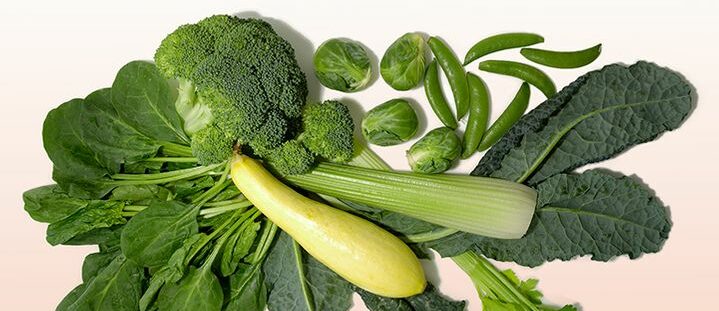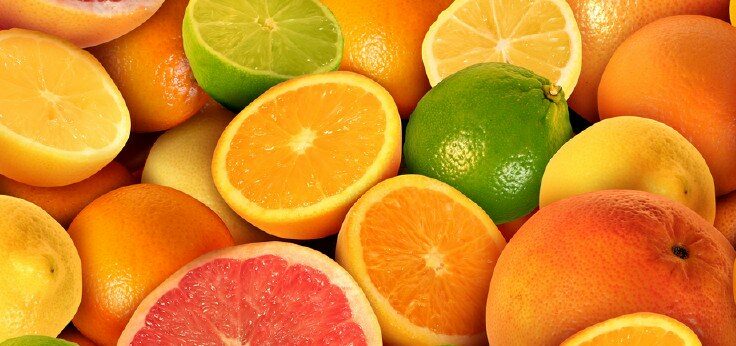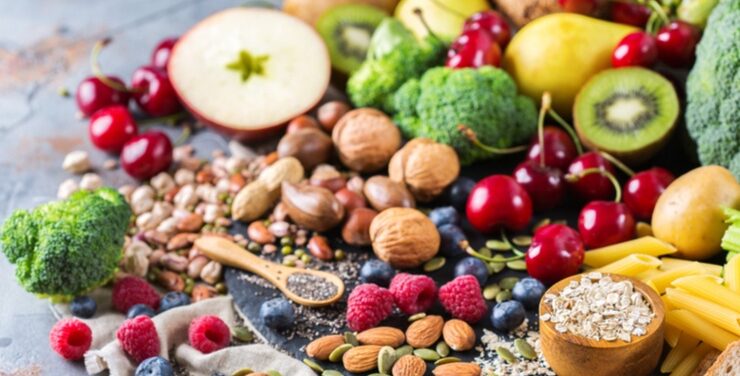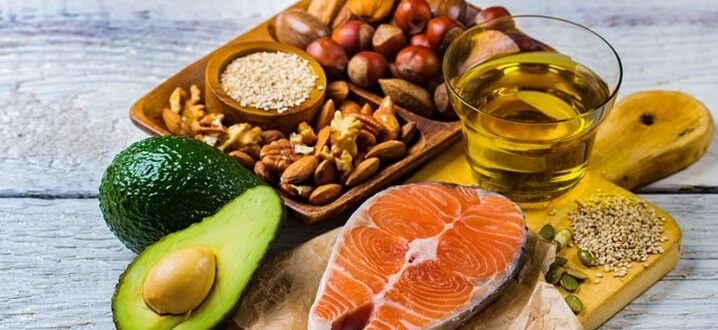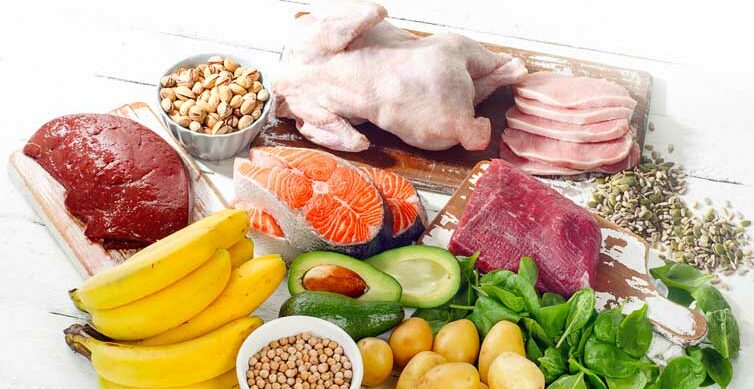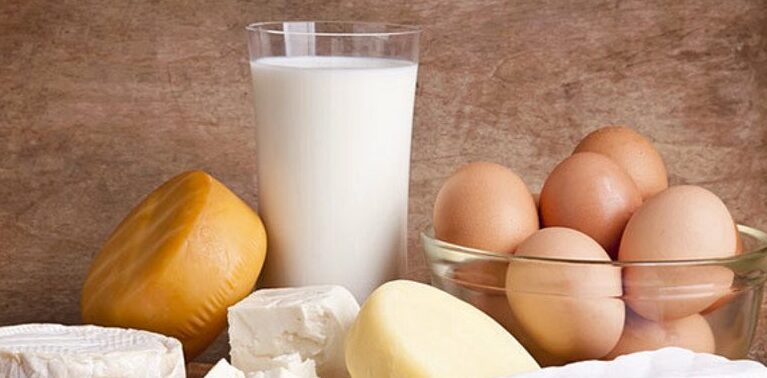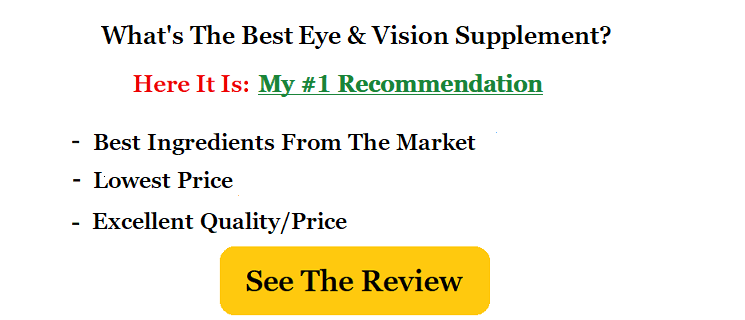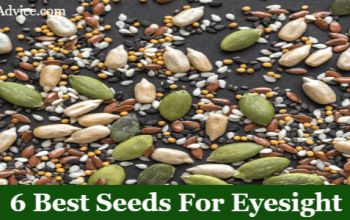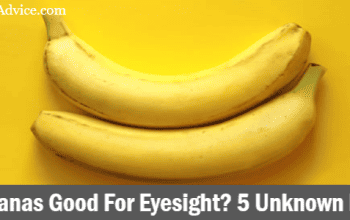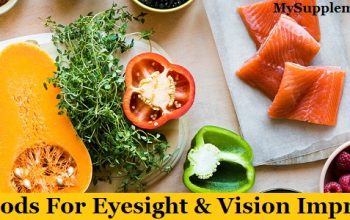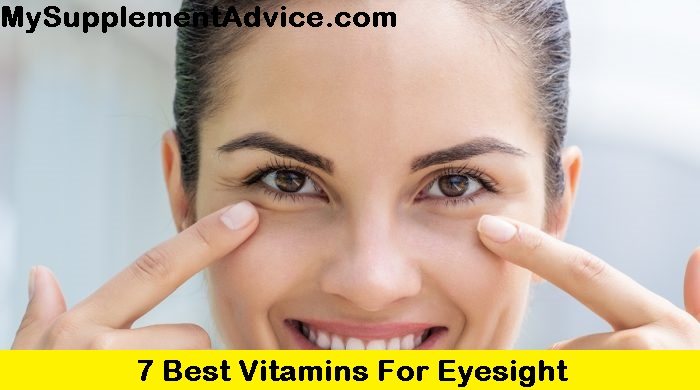
Is your vision slowly deteriorating? Or maybe your sight isn't as accurate as it used to be.
Either way, it's about time to start paying attention to your eyes.
Luckily for you, here are the 7 best vitamins for eyesight.
Note: This guide is founded on thorough research + opinion on eyesight problems.
#1 – Vitamin A
When people are asked what's the healthiest thing to eat for the eyes – most will say carrots.
They are rich in beta-carotene – which is a precursor of a very important vitamin.
I'm talking about Vitamin A, which is critical for your normal vision maintenance [1].
It's stored in your liver – and from there, it will be delivered to where it is needed.
Here are things that Vitamin A can do:
- Fights off eye infections and diseases.
- Allows you to see better in low light conditions.
- Keeps you away from the dry-eyes syndrome.
- Protects the surface of your eye (cornea).
- Contributes to the production of key light-absorbing molecules.
It's important to know that Vitamin A is an essential micronutrient.
This means that it is a must for you to include it in your diet.
That's because it cannot be generated in our body.
These are sources high in vitamin A:
- Eggs
- Carrots
- Oily fish
- Cheese, yogurt and milk
- Kale
- Liver and liver-based products
Keep in mind that it is important for you to make sure you have enough supply.
Having vitamin A deficiency can result in visual disturbances.
Besides, not only is it good for your eyes.
It also has some clear net benefits to your health as a whole.
SUMMARY
Vitamin A is crucial for your eye health.
Make sure to include it in your diet – as it cannot be manufactured in your body.
A deficiency in vitamin A can disrupt your visual ability.
#2 – Lutein and Zeaxanthin
Lutein and zeaxanthin are both some vital ingredients for a healthy eyesight [2].
While they almost have the same structure, they offer different functions.
Lutein helps to absorb blue light – which is a high-energy light ray that can be harmful.
Zeaxanthin, on the other hand, reinforces your visual system by aiding shield the retina from light damage.
Here are more key benefits of both of them:
- Shield for your eyeballs.
- Prevention of cataracts.
- Support for the natural protection of the eye from light exposure.
- Reduction of risk of light-induced oxidative damage.
- Lower incidence of macular degeneration (AMD).
Truly, both of them are strong antioxidants.
They mitigate free radicals that damage your cells – making you prone to diseases.
In general, they are best known to do a really good job in protecting your eyes.
That's why it's crucial for you to make sure you have both of them.
Here are some of the best sources:
- Asparagus
- Squash
- Pumpkin
- Peas
- Lettuces
- Pistachios
- Brussel sprouts
Now, these items are already known to be healthy.
But you don't need to worry if you're not used to eating these dark leafy vegetables.
What you can do is to slowly introduce them to your regular diet – until you get used to consuming them.
SUMMARY
You need the best active compounds to have optimal eyesight.
Lutein and zeaxanthin are almost the same – but they have some unique benefits.
Both of them are well-known to play an important role in maintaining good eye health.
#3 – Vitamin C
There's a reason why this remedy is one of the most popular vitamins.
In fact, experts say that is one of the safest and most effective nutrients.
Also known as ascorbic acid, vitamin C holds a number of benefits for your health [3].
And your eyesight makes no exception.
These are the ways how it makes your eyes healthy:
- Gives a protective structure to your eyes.
- Lowers your risk of having cataracts.
- Prevents the progression of AMD
- Reduces the risk of vision loss.
- Maintains vessels in your eyes.
Now, you know the benefits it can offer you.
Just make sure to get the recommended daily amount for you.
The recommended daily amounts differ from person to person, as there are many factors to consider.
Here are some of the prime sources for Vitamin C:
- Guavas
- Peppers
- Kiwi fruits
- Oranges
- Papayas
These are just some of the items – but there are plentiful to choose from.
And what's better is that most of them are common and affordable in your local stores.
Nevertheless, vitamin C will not automatically erase your blurriness and haziness.
But over time, it will you will begin to see progress along the way.
SUMMARY
Taking vitamin C is one of the most effective ways to improve your eyesight.
It is also known to be the safest.
Plus, foods rich in vitamin C are widely available and cheap.
#4 – Vitamin E
Here's another important micro-nutrient that you should check out.
Not only is it good for your eyes, but it's essential for your health.
Vitamin E is helpful for your brain, blood, skin, reproductive health and your eyes as well.
These are how this vitamin can help your vision maintenance:
- Safeguards your eyes from destructive free radicals.
- Decreases risk of cataracts.
- Prevents your eyes from age-related macular degeneration (AMD).
- Blocks our eyes from having glaucoma.
In fact, it works so well that a 2014 study has shown that people improved their lens clarity [4].
It is also used specifically to treat health conditions like liver diseases, Alzheimer's diseases and prostate cancer.
Provided with the things it can deliver.
It is now vital for you to plan on how to get the best out of it.
Consider the following to supply yourself with Vitamin E:
- Green leafy vegetables (collard greens, broccoli, cabbage, string beans, spinach)
- Vegetable oils (sunflower oil, soybean oils, wheat germ )
- Nuts (peanuts, almonds, hazelnuts, almond)
- Seeds (sunflower seeds)
- Fortified Products (cereals, margarine, fruit juices)
Just like the other vitamins, you need to get just the right amount for you.
While it's rare, too much vitamin E can cause some toxicity problems.
So it's best to know your daily recommended allowance.
Make sure to talk to your healthcare provider.
SUMMARY
Vitamin E is proven to be effective in developing your vision.
Like the other vitamins in this list, its efficacy is backed up by clinical studies.
#5 – Omega 3 Fatty Acids
I understand that there is a bad tag attached to fats.
But you should know that there are types of fat that are vital for your health.
One of these are Omega 3 fatty acids, which are great for your eye health [5].
These are the things that Omega 3 fatty acids can do:
- Help to treat dry eyes.
- Reduce your risk of macular degeneration (AMD).
- Lessen your chances of developing glaucoma as well.
- Maintain overall good eye health.
On top of these specific benefits for your vision, these fatty acids also hold other key health benefits.
Current studies are clear that Omega 3 fatty acids improve your cardiovascular health.
Take a look at these benefits for your total health:
- Maintenance of your arteries linings smooth and free from damage.
- Mitigation of your anxiety and depression.
- Promotion of brain health during pregnancy and infancy.
- Inflammation relief in your body.
- Reduction of cardiovascular diseases.
Remember that Omega 3 fatty acids are considered to be essential nutrients.
This means they are crucial for our body to function well.
Unfortunately, our bodies cannot produce them.
That is why we need to make sure we get them through supplements or diets.
This is a brief sample of items rich in omega 3 fatty acids:
- Salmon
- Mackerel
- Sardines
- Chia seeds
- Seaweed and algae
Notice that you can get dietary supplies both from fatty fish and plant-based items.
So if you're not used to eating fish or meat – there's an alternative.
SUMMARY
Not all fats are bad for your health.
Omega 3 fatty acids provide significant benefits for your eye.
They also improve your general health and well-being as well.
#6 – Vitamin B Group
There are eight vitamins in the B complex group.
All of them are considered to be important for you to have a healthy life.
It's because these essential micro-nutrients play distinct roles in our organs.
They can operate by working together or just doing their specific roles.
The Vitamin B group are composed of the following:
- Thiamin (Vitamin B-1)
- Riboflavin(Vitamin B-2)
- Niacin (Vitamin B-3)
- Pantothenic Acid (Vitamin B-5)
- Vitamin B-6
- Biotin (Vitamin B-7)
- Folate (Vitamin B-9)
- Vitamin B-12
It is no secret at all that they are beneficial for your overall health.
This same group has also been shown to contribute to your good vision [6].
That's because some of them acts as antioxidants, which fight off free radical from doing damage.
Here are the ways how the vitamin B group will help you:
- Prevents you from having sore eyes.
- Lessens the risk of forming cataracts.
- Avoids vascular problems affecting the retina.
- Reduces chances of macular degeneration.
- Treats uveitis.
Now, it's important to take note that you should prevent yourself from being deficient.
That is why you should make sure that you get enough of these vitamins.
Check out the following of high sources of Vitamin B:
- Dark green vegetables (Bok choy, Swiss chard, kale)
- Shellfish (oysters, mussels, clams)
- Meat (chicken, pork, beef)
- Dairy (milk, cheese)
- Kidney and liver
Now, you may find it difficult to get these vitamins via food intake.
Don't fret, as an alternative by taking supplements as reinforcement is also advisable.
SUMMARY
Vitamin B complex is a group of vital micro-nutrients that are needed for a healthy body.
They play critical roles in giving you optimal vision.
Lastly, they are also effective in shielding you from developing eye infections and diseases.
#7 – Riboflavin
This is also known as Vitamin B2, which is part of the group I mentioned earlier.
But I know that this specific vitamin has more to give – that's why it deserves a spot of its own.
While it is usually used in combination with other B vitamins, it has its unique functions.
Just like other micro-nutrients, it has a number of benefits in your body, especially to your eyes [7].
These are the things riboflavin can do to improve your vision:
- Prevents glaucoma.
- Relieves you from eye fatigue.
- Blocks you from getting cataracts.
- Mitigates damages in your eyes.
- Lessens cloudy vision.
Aside from these, its other health benefits are also notable.
They also hold significant parts in your growth, development and maintenance.
Now, I will give you a shortlist of its main sources that you can add to your diet:
- Vegetables (spinach, broccoli, asparagus)
- Fortified cereals, bread and other grain products.
- Eggs
- Milk (Low Fat)
- Meat (lean)
- Organ meats (liver, kidney)
And just like what I said, you could also get riboflavin through supplements.
SUMMARY
Riboflavin carries a special role in terms of your general health.
It plays a key part in ensuring excellent eyesight performance.
You can supply your body with it through dietary intake or supplements.
Best Way To Get These Nutrients

So you have no excuse anymore not to look after eyesight.
Here's an extra tip for you, you can get them all in one go!
Allow me to introduce you to the best vision supplement out there – Lutenol:
- Excellent formula with potent ingredients.
- Contains high dosages of the best compounds.
- Extremely cheap (for real).
- Has the best quality/price among other supplements.
It doesn't stop there – as it also has its own additional key ingredients.
It has zinc as well, which is the valuable vitamin A from your liver to your retina.
Plus, it's this collection of essential ingredients that really makes it stand out among the rest.
Here are the essential benefits waiting for you:
- Improvement of your eye functions.
- Increased performance of vision.
- Enhancement of your retina, lens and macula health.
This product is great for your eye problems and prevent further complications.
It is undoubtedly very convenient for everyone.
That's because you get to have all these critical ingredients in just one go.
And nothing gets better than having that set of right ingredients with the right formulation.
SUMMARY
Along with your diet, take supplements to gain the best results.
Lutenol is the #1 eye and vision supplement – as it has all the right ingredients in the right formula.
Plus, it is very cheap for its quality.
My Final Thoughts
So what are the best vitamins for eyesight?
I have shown you my top 7 recommendations:
- Vitamin A
- Lutein and Zeaxanthin
- Vitamin C
- Vitamin E
- Omega 3 Fatty Acids
- Vitamin B Group
- Riboflavin
I have also shown that you can get all of them in just one go – when you take Lutenol.
However, remember their effect won't be instant, nor will they cure your eyesight problem.
Nevertheless, when you get these best vitamins, you will begin to see improvement gradually.
Always remember not to take your vision for granted.
References
2 – https://www.ncbi.nlm.nih.gov
3 – https://agris.fao.org/agris-search/search.do
4 – https://www.ncbi.nlm.nih.gov/pmc/articles
5 – https://www.ncbi.nlm.nih.gov/pmc/articles/PMC


